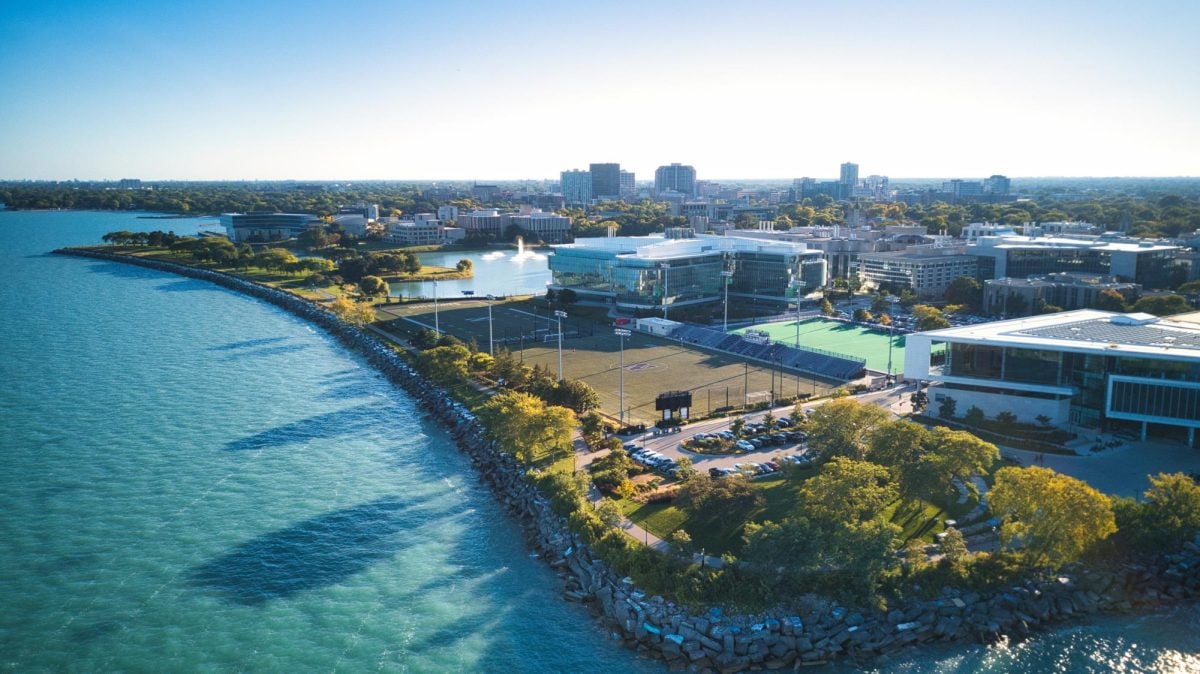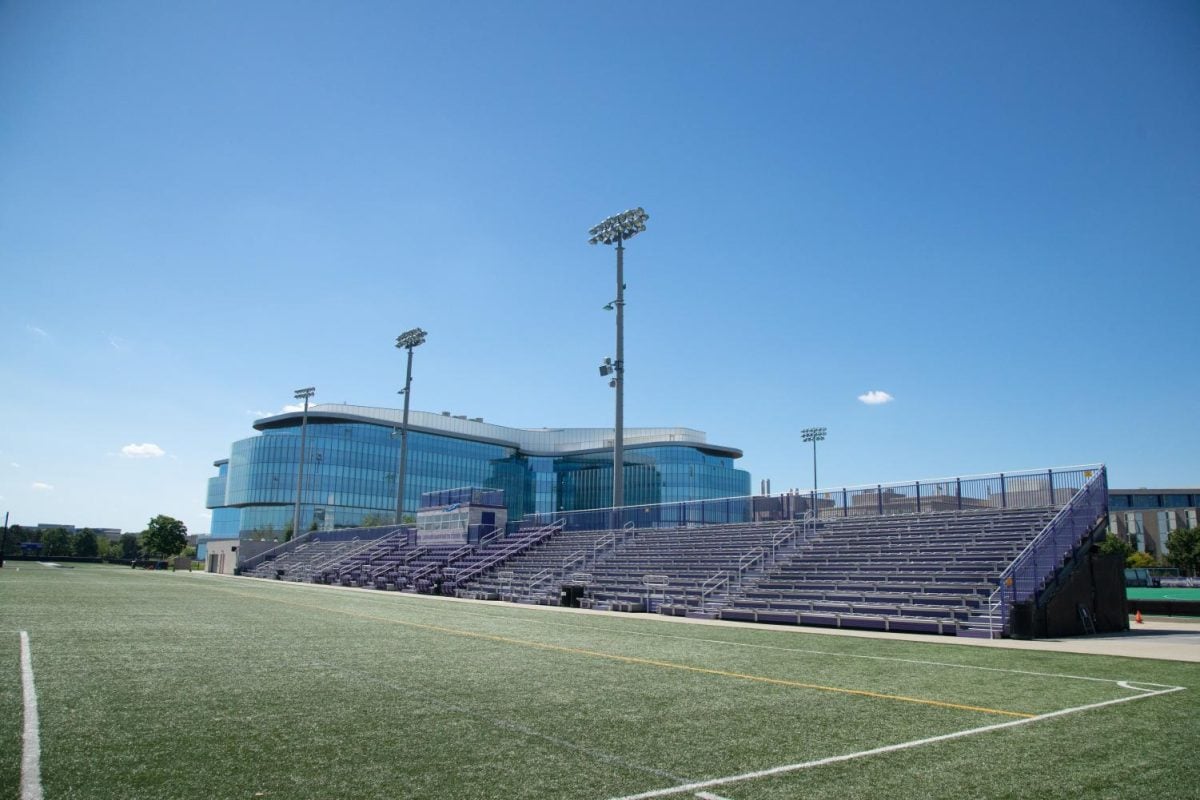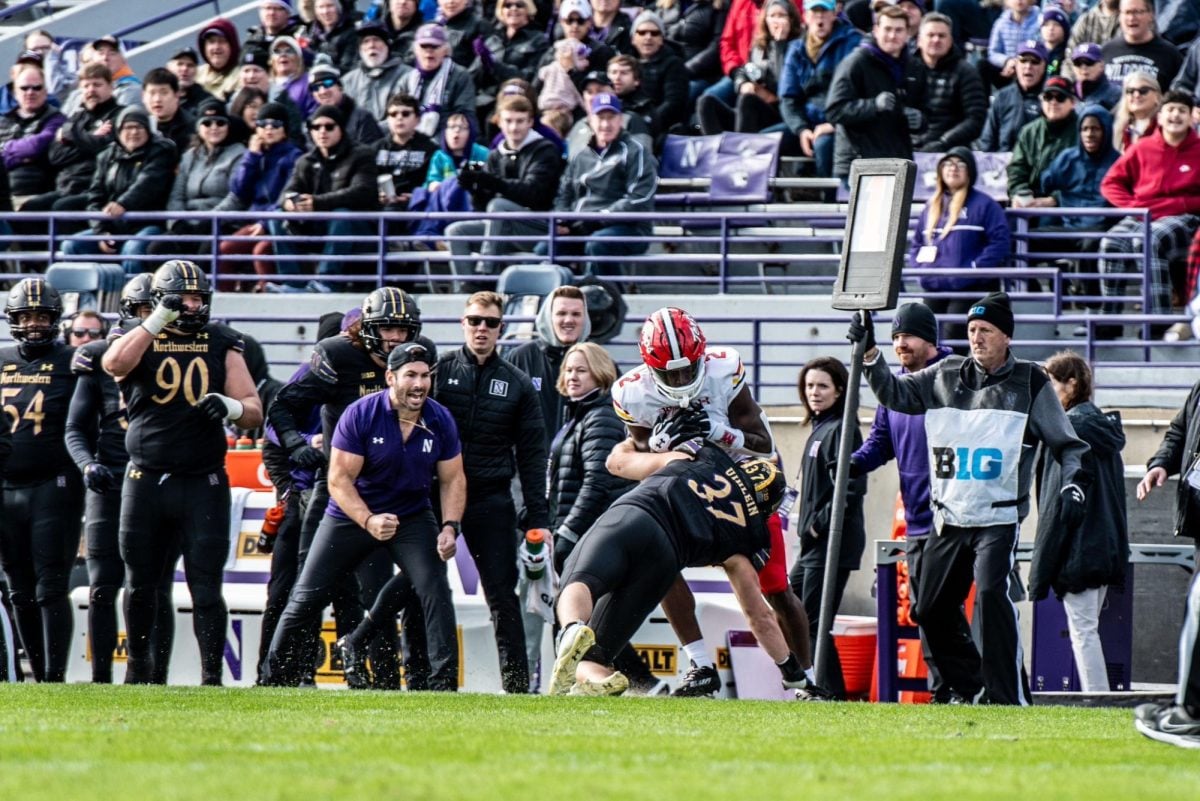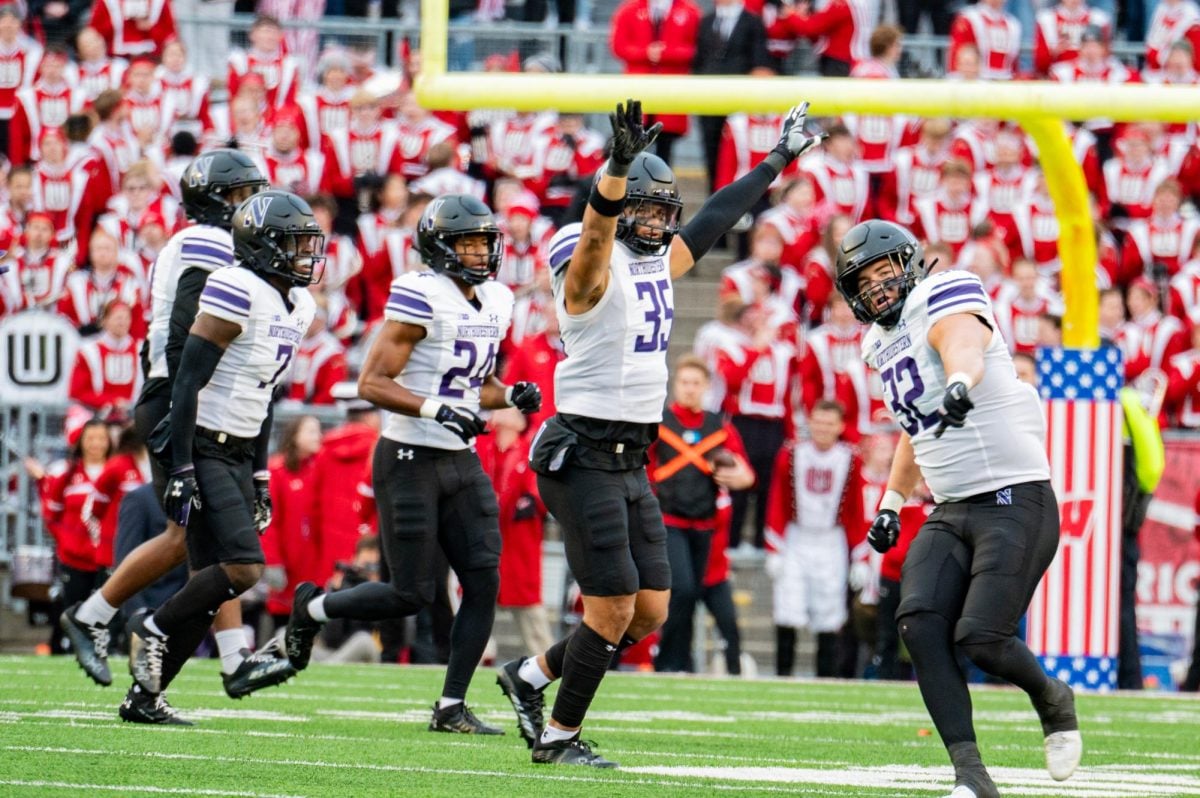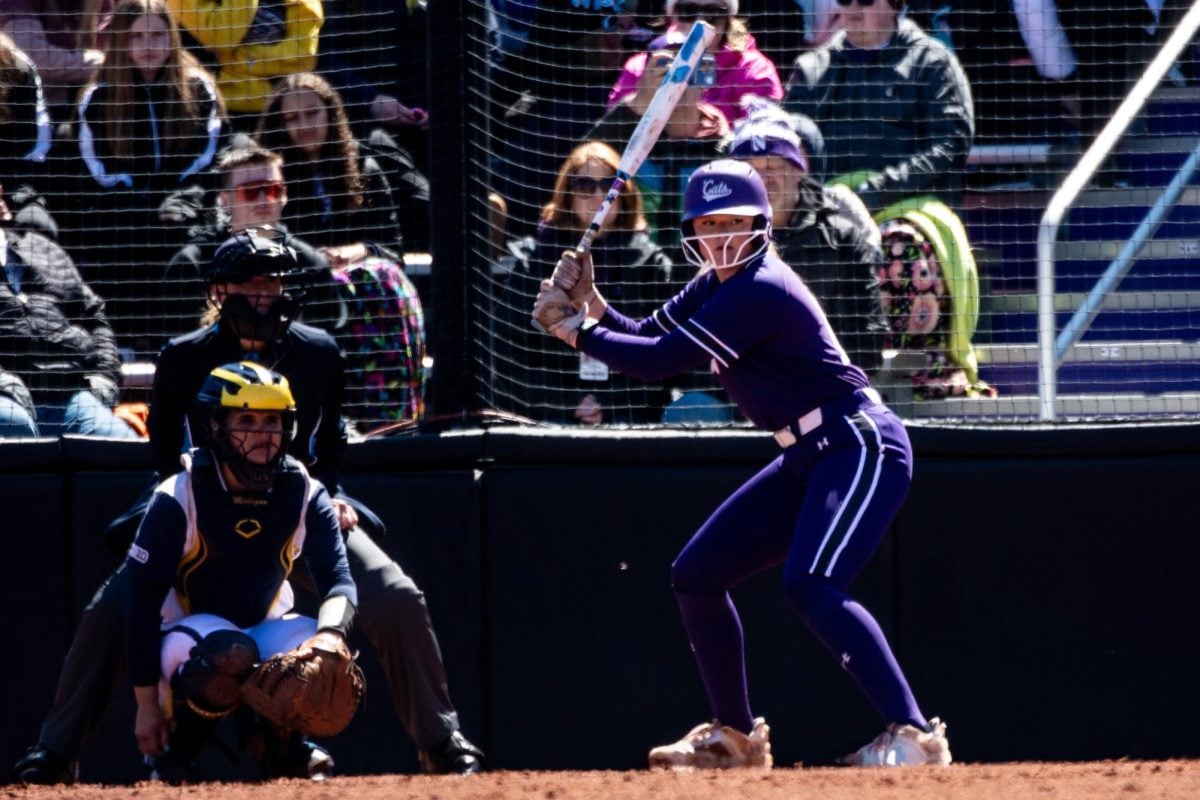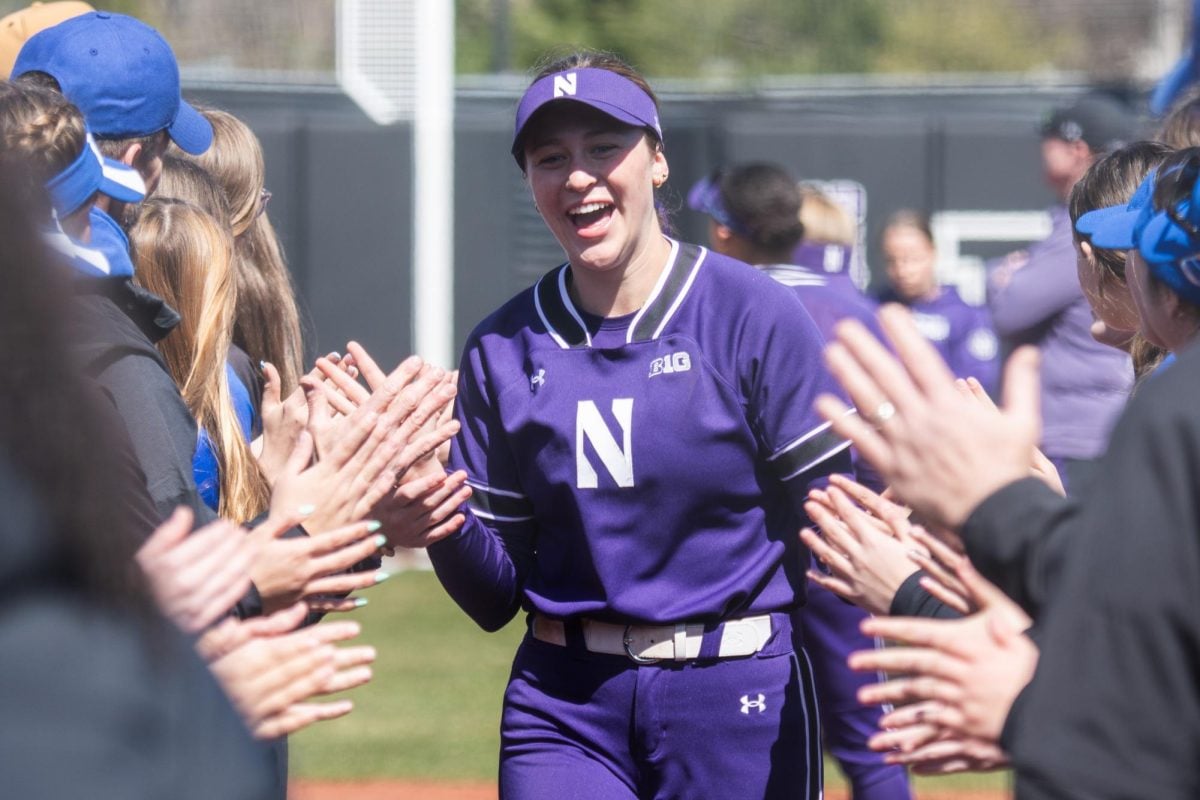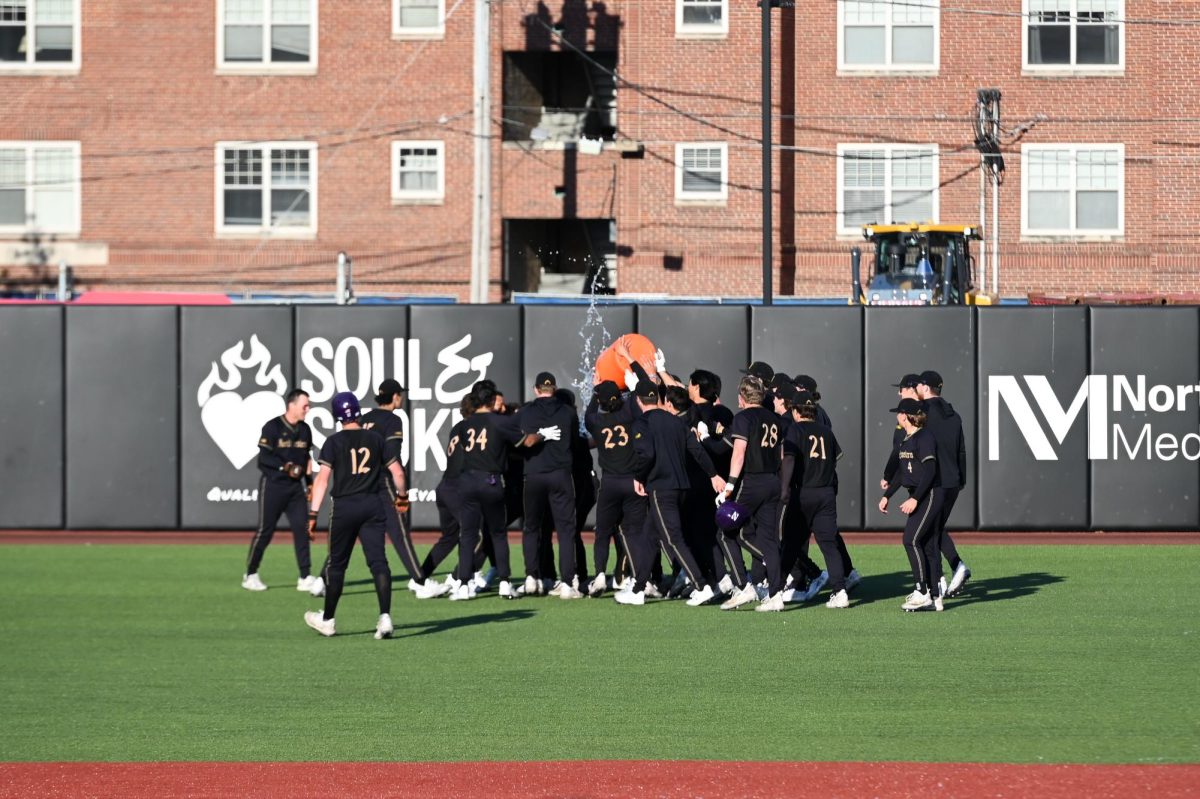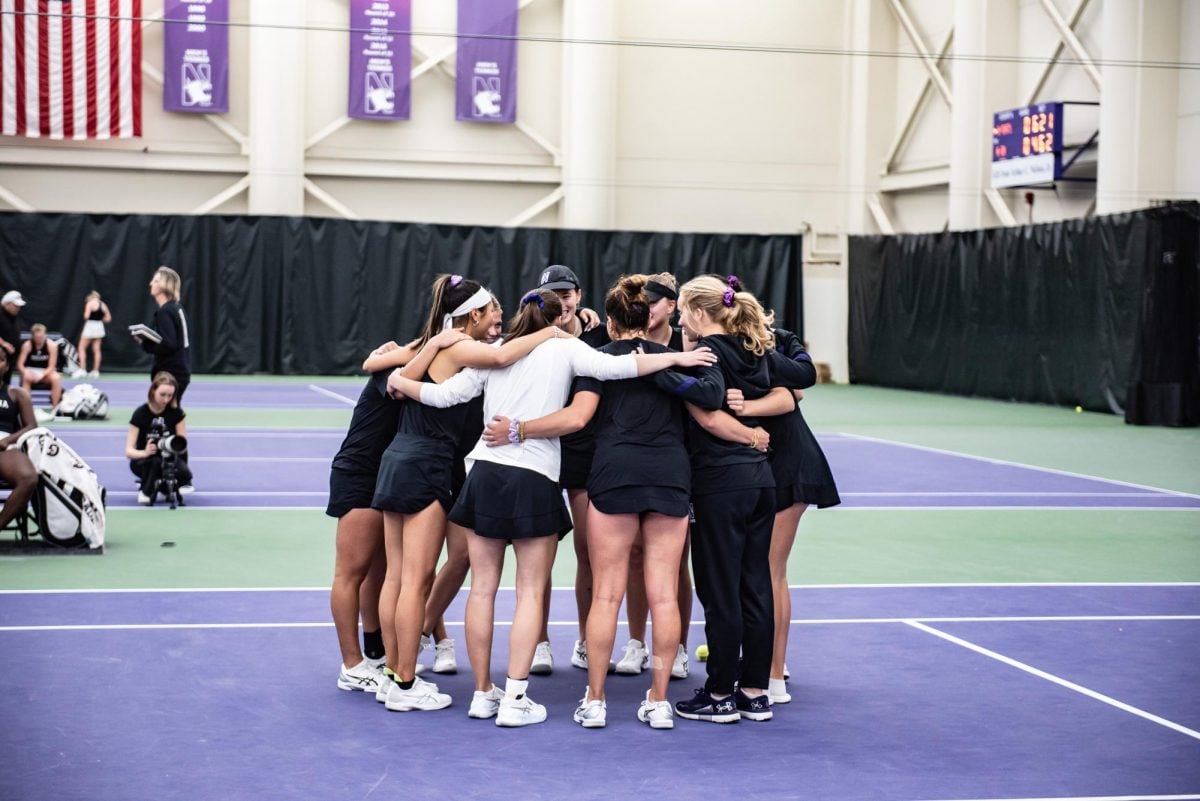The spring football game is two weeks away and football is on the minds of Northwestern fans once again. But what has been happening at Ryan Field since a wave of purple engulfed the playing surface after the 33-31 upset victory over No. 16 Wisconsin in November? The short answer: nothing.
Since Nov. 21, the stadium on Central Street hasn’t seen much action. The Wildcats next take the field April 24 for the annual spring game. Except for a few applications of herbicide and fungicide, there has not been much work done to former Dyche Stadium.
“Nothing is going on right now,” said Carrie Forsman, NU’s director of facilities. “We’re just getting ready for spring and letting nature take its course.”
Forsman said the cold weather causes the field to remain inactive during the winter. The only events that occur yearly at Ryan Field are football and graduation.
Tim Van Loo, NU’s former agronomist, now the manager of athletic turf and grounds at Iowa State, had the task of preserving the playing surface over the long winter. Van Loo’s mission was for the field to not have an impact on the outcome of the game.
“My goal is to create a playing surface that is safe for our players and the opposing team,” he said. “My worst nightmare would be an injury caused by the playing surface.”
Many would think snow could be harmful to the grass at Ryan Field, but Van Loo said it acts as a blanket for the plant. Inversely, he said that arid, freezing temperatures could cause desiccation and harm the grass.
“If you get real dry and cold without any cover, you can really injure the plant,” Van Loo said. “The snow is what protects it from the cold and insulates it.”
The only arboreal threats to the field are pink and grey snow mold and invasive weeds, such as poa annua. These are treated by fungicide and herbicide, which are applied a few times between the end of the year and the spring game.
After the spring game, the facilities staff will prepare the field for graduation on June 18. Fertilizer and grass seed will be applied to the playing surface once the temperature consistently reaches 60 degrees or warmer.
Van Loo said the grass seed is not necessary but it helps enhance the aesthetic appeal of the field for graduation.
“We throw on a little seed to fix what was torn up in the spring,” Van Loo said. “We just try to recover as much as we possibly can before graduation and get 100 percent for graduation.”
While Ryan Field is quiet in the winter months, people still use the stadium’s facilities for other reasons. The Stadium Club and other offices are still used, for example.
“There is always something going on at Ryan Field,” said Scott Arey, NU’s assistant athletic dirctor for facilities. “The training rooms, locker rooms, offices and ticket office are all still in play.”
The facilities staff will be lining the field this week in preparation for the spring game. Ryan Field will soon be out of hibernation.[email protected]

